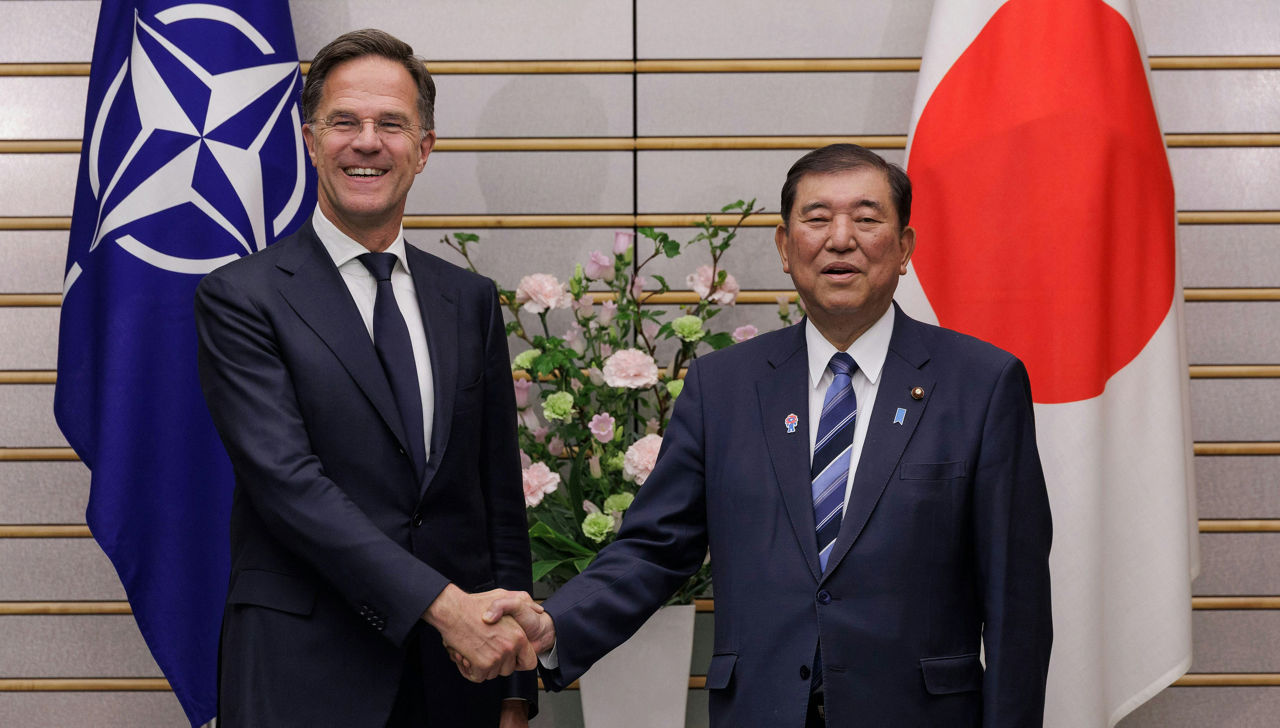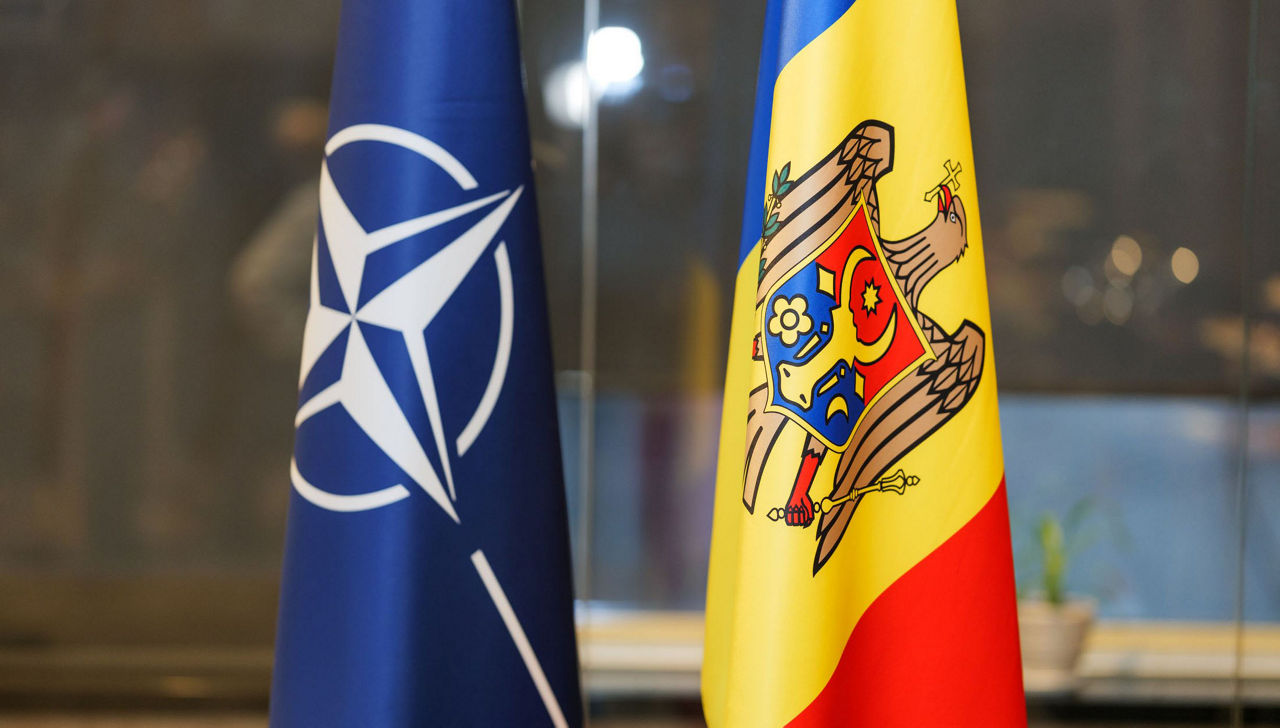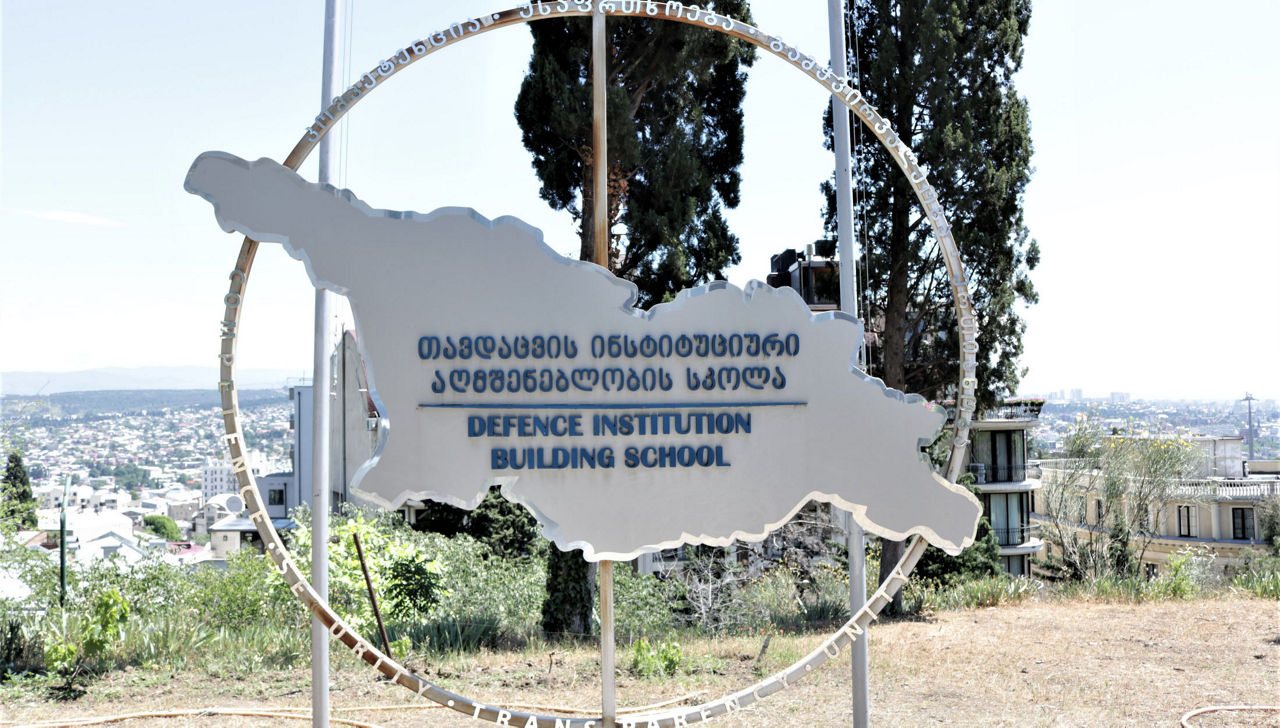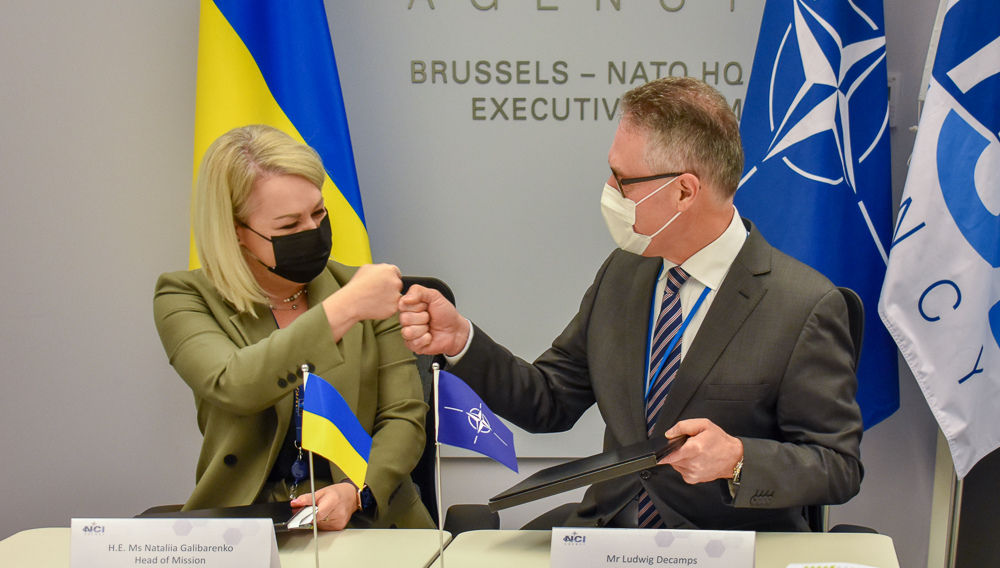Download NATO’s broadcast-quality video content free of charge

Log in
NATO MULTIMEDIA ACCOUNT
Access NATO’s broadcast-quality video content free of charge

Check your inbox and enter verification code
You have successfully created your account
From now on you can download videos from our website
Subscribe to our newsletter
If you would also like to subscribe to the newsletter and receive our latest updates, click on the button below.
Enter the email address you registered with and we will send you a code to reset your password.
Didn't receive a code? Send new Code
The password must be at least 12 characters long, no spaces, include upper/lowercase letters, numbers and symbols.
Your password has been updated
Click the button to return to the page you were on and log in with your new password.
NATO Trust Funds
Updated: 06 February 2026
NATO Trust Funds are flexible, scalable funding instruments through which the Alliance resources and implements practical defence and security projects with partner countries. Initiatives supported by Trust Funds can range from ad-hoc short-term activities (such as the provision of medical equipment and transportation) to broader capacity-building programmes lasting several years (for example, capability training on demining and the demolition of surplus arms and weapons). Trust Funds are supported by contributions from individual NATO members and other donor countries, including both direct financial support and in-kind contributions such as facilities, expertise and equipment.
- NATO Trust Funds provide resources for projects of practical cooperation between the Alliance and partner countries in various areas, including demilitarisation, defence transformation, capacity-building and a provision of goods or training.
- Established to manage contributions from individual NATO members and other donor countries, NATO Trust Funds enable faster responses to partner requirements with a lower administrative burden.
- Trust Funds were first developed in 2000 within the framework of NATO’s Partnership for Peace (PfP) programme to assist PfP partners with the safe destruction of stockpiled anti-personnel landmines. Over time, they have expanded to other NATO partners and partnership frameworks, as well as other areas of expertise.
- NATO currently runs three consolidated Trust Funds: the Defence and Related Security Capacity Building (DCB) Trust Fund, which helps partners improve their defence and security capacities and resilience; the Ukraine Comprehensive Assistance Package (CAP) Trust Fund, which gives support and assistance to Ukraine to be able to provide for its own security; and the Partnership Trust Fund, which encompasses other defence and security cooperation projects.
How do Trust Funds work?
Trust Funds are an integral part of NATO’s policy of developing practical security cooperation with partners. Any partner country or international organisation that cooperates with NATO may request assistance. The details of each project are shared with Allies and other donors, and projects conform to guidance approved by the North Atlantic Council. Individual NATO and, in some cases, partner countries can then provide assistance on a voluntary basis in the form of financial support or in-kind contributions. The projects are overseen by NATO’s Operations Division.
The evolving scope and use of Trust Funds
Trust Funds were first developed in the framework of NATO’s Partnership for Peace (PfP) programme, which promotes bilateral cooperation between NATO and individual non-member countries in Europe, the Caucasus and Central Asia. However, over the years, the use of the NATO/PfP Trust Fund mechanism has expanded to other NATO partners, including countries in the Mediterranean and broader Middle East regions as well as partners across the globe.
The end of the Cold War left a dangerous legacy of ageing arms, ammunition, anti-personnel mines, missiles, rocket fuel, chemicals and unexploded ordnance. Launched in September 2000, the original aim of NATO/PfP Trust Funds was to provide the Alliance with a practical mechanism to assist partners with the safe destruction of stockpiled anti-personnel landmines. This helped the countries meet their obligations under the 1997 Ottawa Convention on the Prohibition of the Use, Stockpiling, Production and Transfer of Anti-Personnel Mines and on their Destruction. The first such project was launched in Ukraine, followed by others in several Balkan countries as well as other countries in the European neighbourhood.
Initial success in the safe destruction of anti-personnel landmines led to an extension of the use of Trust Funds to include projects to destroy conventional munitions, as well as small arms and light weapons (SALW). Within a few years, the scope of the NATO/PfP Trust Funds was further expanded to support wider defence transformation initiatives, such as projects for the resettlement of former military personnel in Bosnia and Herzegovina, Serbia and Ukraine. Over the past several decades, NATO has used Trust Funds to help partners decommission thousands of tonnes of weapons – including millions of anti-personnel landmines and hand grenades, and hundreds of millions of rounds of ammunition – to fulfil their obligations under international agreements and contribute to the security and safety of civilian populations.
Defence and Related Security Capacity Building (DCB) Trust Fund
The DCB Trust Fund, established in March 2015, supports the implementation of the DCB Initiative, which was launched in September 2014 at the NATO Summit in Wales.
The DCB Initiative helps partners improve their defence and related security capacities, as well as their resilience, and therefore contributes to the security of the Alliance by increasing the stability of countries in its neighbourhood. The Initiative is tailored to the needs of the recipients, within the overarching framework agreed in each country’s Individually Tailored Partnership Programme (ITPP). NATO DCB reinforces and complements what is offered through other NATO partnership programmes. As of 2025, eight recipients are benefiting from DCB packages: Bosnia and Herzegovina, Georgia, Iraq, Jordan, Mauritania, the Republic of Moldova, Tunisia and the United Nations (UN) (which receives support for peacekeeping missions and operations).
Along with common funding – i.e., contributed directly to NATO by Allies – under the NATO 2030 funding stream, the Trust Fund has been a crucial enabler for DCB activities, allowing Allies and other donors to contribute, on a voluntary basis, to the implementation of projects developed in support of the packages.
Ukraine Comprehensive Assistance Package (CAP) Trust Fund
Ukraine is one of the Alliance’s key partners. At the 2016 Warsaw Summit, NATO Allies introduced the Comprehensive Assistance Package (CAP), which is the overarching framework through which NATO provides practical support to Ukraine. The CAP covers two main areas of work: urgently needed, non-lethal military assistance based on Ukraine’s requests for support, and longer-term capacity-building projects designed to assist Ukraine with its reforms in the defence and security sector and post-war recovery. Following Russia’s unprovoked full-scale invasion of Ukraine in February 2022, the Allies agreed at the 2022 Madrid Summit to strengthen the CAP and provide even more support to Ukraine.
Under the Ukraine CAP Trust Fund, since February 2022, NATO has developed a wide range of projects providing short-term, non-lethal assistance in multiple areas, such as combat rations, fuel, army boots and clothing, medical supplies (including first aid kits and pharmaceuticals), military education and training equipment, communications equipment and services, explosive ordnance disposal equipment, and counter-drone equipment. The Alliance continues to develop new short-term support projects in a variety of areas, in close coordination with Ukrainian authorities based on Ukraine’s most urgent needs.
At the 2023 Vilnius Summit, Allies agreed to further develop the CAP into a multi-year programme for Ukraine, based on sustained and predictable funding. Longer-term support is organised through three principal lines of effort: recovery and reconstruction, institutional transformation, and transition towards NATO interoperability.
All projects under the Ukraine CAP Trust Fund are developed at the request of and in collaboration with the Mission of Ukraine to NATO and in close cooperation with subject-matter experts.
Partnership Trust Fund
The Partnership Trust Fund, established in December 2021, is a flexible, overarching instrument designed to accommodate any cooperative security objective that Allies may wish to pursue that does not fall within the scope of either the DCB Trust Fund or the Ukraine CAP Trust Fund. This mechanism allows Allies to provide resources quickly for specific political or practical objectives. The Partnership Trust Fund can include projects that have a single beneficiary or multiple beneficiaries, and can fund various initiatives ranging from large, cross-cutting activities on themes such as Building Integrity (BI) and small arms and light weapons (SALW), to stand-alone projects.
The Partnership Trust Fund has successfully implemented several projects covering practical cooperation between NATO member and partner countries. For example, between 2019 and 2022, a project destroyed 755 tons of surplus arms and ammunition in Serbia. From 2018 to 2021, an initiative in Armenia completed the decommissioning of 21 armoured combat vehicles. In addition, from 2004 to 2021, a project between NATO and the United Nations Office on Drugs and Crime (UNODC) in Central Asia trained over 8,000 personnel from NATO partner countries in Central Asia in counter-narcotics.
Working with other organisations and stakeholders
NATO cooperates actively with other relevant stakeholders on Trust Fund projects to ensure coherence and effective implementation, and to avoid duplication of efforts. Trust Fund projects are delivered by a range of entities such as NATO bodies (including NATO agencies), Allied governments and government agencies, non-governmental organisations, academia, and other international organisations such as the European Union (EU) and the Organization for Security and Co-operation in Europe (OSCE).
These entities can act as Executing Agents (EAs) and Implementing Agents (IAs) for projects and activities, helping NATO deliver capacity-building at the level of ambition set by NATO Allies. For example, the International Organization for Migration (IOM) was the Executing Agent for the retraining Trust Fund projects in the Balkans, and the United Nations Development Programme (UNDP) implemented a NATO-initiated Trust Fund project for the safe destruction of anti-personnel landmines in Tajikistan.
NATO continues to explore opportunities with stakeholders to deliver defence and security cooperation and assistance to NATO partners, under the guidance of Allies. The Alliance works with a wide range of EAs and IAs to deliver concrete and sustainable benefits to partner countries beyond NATO’s borders; in 2024 alone, NATO delivered Trust Fund projects and activities totalling over EUR 535 million. These partnership activities directly and substantively contribute to NATO’s core tasks of crisis prevention and management, as well as cooperative security.






